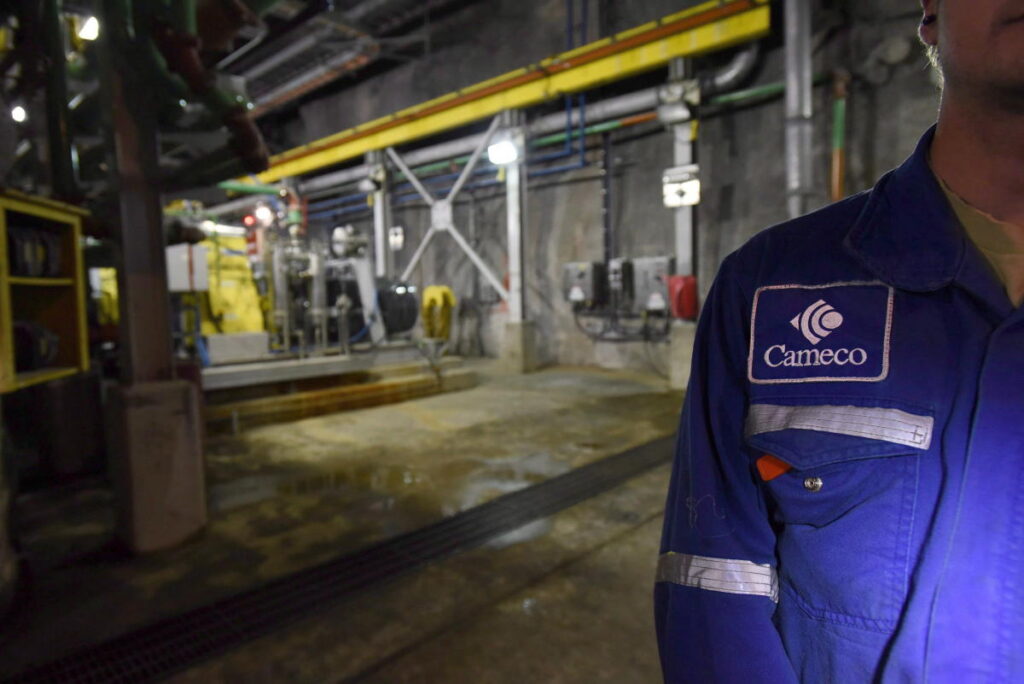Canadian uranium producer Cameco (CCOTO)(CCJ) says it’s “disappointed and surprised” by a production halt on New Year’s Day at a mine jointly owned with Kazakhstan’s national atomic company.
Saskatoon-based Cameco owns a 40 per cent stake in Joint Venture Inkai (JV Inkai), located in Kazakhstan’s southern Turkestan region. Kazatomprom, which owns a 60 per cent stake, informed its Canadian partner on Wednesday that it had not been granted an extension by Kazakhstan’s energy ministry to file project documents due by the end of 2024.
“As majority owner and controlling partner of the joint venture, on Dec. 30, 2024, Kazatomprom directed JV Inkai to plan for a halt of operations as of Jan. 1, 2025, to avoid potential violation of Kazakhstan legislation,” Cameco stated in a press release on Thursday.
“We are disappointed and surprised by this unexpected suspension and will be seeking further clarification on how this transpired, as well as the potential 2025 and 2026 production and financial impacts (including on future dividends), and what Cameco can do to help Kazatomprom and JV Inkai restart mining operations.”
The company says reports it received as recently as Dec. 26 made no mention of the risk of a production suspension related to JV Inkai’s “Project for Uranium Deposit Development” documentation.
Toronto-listed Cameco shares closed 1.6 per cent lower at $75.09 on Thursday.
Kazatomprom says it produced about 20 per cent of the global uranium supply in 2023. However, it slashed production targets for 2024 and 2025, blaming uncertain sulphuric acid supplies and construction delays at newly developed deposits.
In November, Cameco raised its 2024 outlook for uranium production attributable to the company from 22.4 million pounds to as much as 23.1 million pounds. The company estimated 2024 output from JV Inkai would be 600,000 pounds lower versus last year, due to the acid supply challenges.
RBC Capital Markets analyst Andrew Wong says while Kazatomprom and the Kazakh government are motivated to restart production, the situation is “largely out of Cameco’s control.”
“The issue further highlights risks to global uranium supply presented by uncertainty in Kazakhstan following significant management turnover at Kazatomprom in the past couple years, and an uncertain operational environment over the past two years that have included ongoing challenges in securing sufficient supplies of sulphuric acid, multiple production guidance cuts, logistical delays, and a country-wide protest,” he wrote on Thursday.
Wong sees the suspension at JV Inkai as likely to be resolved within weeks, resulting in “only a minor financial impact to Cameco.” He maintains an “outperform” rating on the company’s Toronto-listed stock, with a price target of $90 per share.
Cameco’s stock has soared more than 500 per cent over the past five years amid skyrocketing global support for nuclear energy. At COP29, the annual United Nations climate summit, six additional nations pledged to triple global nuclear capacity by 2050. A total of 31 nations now back this goal.
Long-term demand is forecast to outstrip supply.
“With global uranium mine production well short of the world’s uranium reactor requirements, the supply deficit building over the next decade, and near-term supply inhibited by long lead times and capital intensity, we believe that restarts and new mines in development are critical,” Sprott Asset Management ETF product manager Jacob White wrote in a mid-December report.
“Operational challenges appear to be getting worse, which will keep supply conditions tight,” he added.
“The nuclear fuel supply chain remains highly susceptible to disruptions.”
Jeff Lagerquist is a senior reporter at Yahoo Finance Canada. Follow him on Twitter @jefflagerquist. Download the Yahoo Finance app, available for Apple and Android.
Read the full article here


